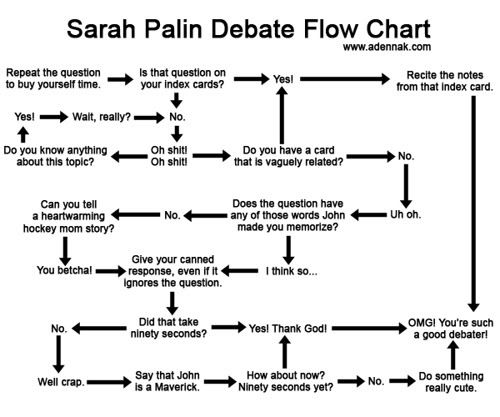I've been thinking about this bailout business. I've had conversations with many people about it, and I'm in the middle of a giant special in the Economist about the bailout. I'd like to say that because I have an Economics degree and I read things entitled "Economist" or "Financial Times", that it sheds some special light on this mess for me. It doesn't. It's complicated. But for my own purposes (and because JP asked me), I'm going to try to make sense of it. But even though he asked for 500 words or less, I'm not sure I can make that happen. In fact, it's probably going to be a really long ass post. I am going to put it into categories, though. Even if all it does is help me piece it together. I think there does need to be one or two caveats added, though. As objective as I'll try to be, all the explanations/refutations are inevitably somewhat colored by our political persuasions and economic viewpoints. I'm also sure I'm going to leave things out, so if I don't present the "complete" economic picture, it's not like anybody else whose job it is to tell people these things has either. Go read a magazine about it or something. Sigh.
How the Hell Did We Get Here?
Well, people are still bitching about that and probably will still be debating it fifty years from now. People are blaming everything and everyone, including Bill Clinton, who it seems someone somewhere has to blame for something on a routine basis. There are several reasons we're going to hell in a handbasket right now (instead of a designer bag).
Unsustainable Growth/Consumption. That pretty much sums up a good lot of it. It is a fallacy to believe that the economy can just continue to grow infinitely. People tend to look at nature and natural resources as some subset of the economy, as if the economy is somehow the overarching ecosystem we live in. It isn't. It's the other way round. Putting aside the issue of literally running out of resources, consider what's going on in the economy right now as a metaphor for running out of natural resources. You only have so much money coming in. You can only feasibly buy so much stuff. Even with credit, you can only falsely extend your purchasing power for a finite amount of time. Eventually you hit your credit limit. At that point the piper wants to be paid, and that's when shit started to hit the fan. It hit the fan in several ways.
Subprime mortgage lending was the main way. Two groups are responsible for this. The first group includes the people who thought they were entitled to more house than they could afford, and were willing to take a gamble on their bank loan to get it. What does a subprime loan even mean? It means that money is lent (in the form of a mortgage, a credit card or a car loan) to someone who is either asking to be lent wa-ay too much money than what they can afford or who has no assests to back up such a loan or who has a shitty credit rating--probably because they have a history of not paying stuff back. The way bank loans worked in the good old credit solvent days, were that you had to put down 20% of what the house was valued at before you could even get a loan. Then, you got a *fixed rate* mortgage with a payoff date of probably around 30 years. You knew what your mortgage payment was going to be for the next 30 years. Banks decided to get creative with the way they loaned money to people. One of the first ways they got around it was to drop the 20% requirement and start charging PMI (private mortgage insurance) instead. PMI is just tacked onto the monthly payment, and is the fee a person pays for being more risky than someone who bothered to save up the money to prove they had good money management skills. Another way they now loan money to people is called an Adjustable Rate Mortgage, or an "ARM". This loan has an interest rate that is tied to market indicators, usually some sort of index like what Treasury bills are doing or what the national average lending rate is. Which means when it's down, your payment is cheaper. When it goes up, on the other hand, so does your payment. That's the main thing that is forcing people out of their homes right now. They got an ARM while the rate was low. They were told that the market would stay low for a long time, and they chose to believe it. Now that interest rates have risen, they simply cannot afford to make the payments anymore. According to Wiki, for example, ARM defaults made up 43% of all banking defaults recently. By 2006, also according to Wiki, subprime loans made up $600 billion in loans--about 1/5 of the housing market. Other bizarre types of loans include"interest only" loans, which only lets you pay the interest for 5-10 years (but keeps you in debt for a lifetime, since your payments never reduce your balance) or plans that let you choose how you want to pay--sort of hybrid loans that start off with fixed rates only to convert to an ARM at a later time. Think of the introductory offers credit cards offer you in the form of 0% for the first X months. Same thing. Incidentally, there are also subprime credit cards and car loans. It' s not just houses. Predatory loans include very exhorbitant fees and closing agreements, much of which wasn't explained to the person taking out the loan.
Now, there is sort of a chicken & egg tendency that emerges at this point. Who is to blame, reckless people who took on more debt than they could afford, or reckless lenders, who by and large played it for all it was worth, knowing these people were going to default sooner or later? The answer is most likely "both," and it happens to also be a class issue. The people who took on most of these loans simply didn't make enough money to cover the payments, nor, in my opinion, did many of them really understand what they were getting into. If those of us with degrees in business cannot fully process it, how is someone with a high school diploma or a GED supposed to? I'm not talking about people who wanted a second home and couldn't afford it. I'm referring to the first time home buyers taking credit from places that are basically a financial loan shark operation. There are lenders that are essentially set up as pay-day advancers--the ones who will give you a loan before your paycheck comes in but then charge you 20% or more to pay it back. The same people who end up having to take out cash advances from these places are also the same class of people who bought into these shoddy loans. Say what you want about that, I don't care. It's part of the problem. They didn't understand what they were getting into, and the lender didn't bother to explain it to them. They're both at fault--the ethical question might be, who is more at fault? The person who was ignorant of the way it works, or the person who purposely left out that information? Ignorance is no excuse. Maybe. Maybe not.
So how on earth could this affect everybody if it's just about people who can't pay their mortgages?
The simple answer is
Subprime mortgage "bundling." In my opinion, the real answer is greedy fuckers who don't place good bets. But the economic answer is "bundling." Bundling is the reason why many supposedly reputable financial institutions are in trouble right now instead of just the slimy ones that deserve to go under. What happened is that investment houses came up with the brilliant idea of buying mortgages from bank lenders and then bundling them all together and issuing bonds out of them. They used the monthly payments from homeowners to pay interest on the bonds, and in theory the principal would be repaid once all the mortgages had been paid down or refinanced. Of course, that went to shit when the homeowners couldn't pay their mortgages and both banks and investment houses (and your mutual funds and 401ks, incidentally) were left holding the bag. Investment houses like Merril Lynch being willing to buy up/create bundles out of these mortgages encouraged financial lenders to keep making stupid loans and passing them on. This encouraged some lenders to
overleverage themselves. What that means, is that they took on wa-ay more debt than they could cover by issuing tons of subprime loans in the hopes that the housing market would continue to soar and make them lots of money in the future. When lenders are overleveraged, some of them in debt
up to thirty times what they are worth, their failure means
lots of failure. It's not just a loss, it's a loss times thirty, if that makes any sense. Supposedly smart institutions like Merril Lynch decided to make up some of their other finanical products like mutual funds with these bundled crap loans. That's why everyone has the potential to be hurt like this (among another reason, which is discussed below)--the stupid has been spread over the whole financial market, like butter on toast.
Essentially, people who knew better bet on the 50-1 horse and are now acting surprised that it didn't come in.
Belief that Markets are "free". The rest of us, meanwhile, are left to puzzle out how the market could've ended up this way if it were truly a "free" market, which is also, supposedly, a self-correcting market. Well, the truth of the matter is that the markets were, largely, free to do whatever the hell they wanted to. There will be some people who bitch about Bill Clinton (as usual) or the 1977 Community Reinvestment Act (which sources--as in a quick Google search--will show is not to blame), but the fact is that deregulation was the name of the game. There were rules in place, but the Securities & Exchange Commission (the other SEC), which is sort of like the nuns with rulers in a Catholic school, did nothing about it. They turned a blind eye. They all got what they wanted--no one to have a hand or a say in their business--and the result is the worst financial disaster (possibly) in history.
In my opinion, people who believe in the "invisible hand" of the market are no different than people who believe in the "holy ghost" of the Lord. There is no objective economic system that functions outside of human behavior. Economic systems are only in place because of human beings, and they function in tandem with human nature. There is no pure capitalist system (or socialist, communist, whatever-ist) without human beings to run it. And human beings look out for their own. Thousands upon thousands of years of history shows us what our behavior trends toward without intervention and regulation. We don't hire the most able--we hire the person who gets us ahead either socially, who promotes family bonds, or who gives us the most to gain personally--that doesn't always translate to the best thing for the markets. The most memorable events of economic history have not been righted by some "hidden hand" of capitalism. They were changed by the course of human intervention. In recent memory, the Great Depression and the almost-crash of Black Monday in 1987 were reversed or averted solely through specific human intervention. Market balance had nothing to do with it.
That's why some economists, the government, and apparently most people living in other countries think a bailout is critical right now.
What's the Bailout Supposed to Do?
Here's where things get murkier and more interesting.
Supposedly, the bailout will halt the downward spin we're in right now. The bailout allows the government to buy up the bad loans, which injects cash into the markets that are currently failing. This is supposedly a good deal, because even though the loans are crap, the land is still worth having. Markets simply can't run without some liquid cash (which means real money, not stocks or something) to buy things. This bill injects cash into the market and also will somehow keep homeowners in their homes by allowing the government to renegotiate the loan--it appears, anyway--and somehow it claims taxpayers will be protected from these bad decisions made on Wall Street through the act of buying these junk loans, although it's difficult to see how, and the executive summary doesn't make that clear, and the original bailout explanation from the government was 110 freaking pages long. Supposedly, executives lose their bonuses and severance pay, and while the Fed has $250 billion to act upfront, it has to come back and prove it needs more than that before it can spend any more. Congress has already signed this into law, so it's a done deal. It's sort of considered "emergency surgery", as one news article I read put it. It's not like this is going to make the economy get up, stretch it's arms and walk out of the hospital on its own two feet. But, presumably, it did save the economy's life.
What else is in this bill? Har. The new bill is over 450 pages long, and some of the filler is pure pork--you know, the kind of stuff John McCain recently said he was absolutely against in the last debate? (Although both he and Obama voted for this bill Friday.) Among other concerns is a tax repeal for the manufacturers of children's wooden arrows. I'm sure they appreciate it, although looks like repealing any taxes right now is stupid, considering how much we have to pay for. When was the last time you even saw children's wooden arrows for sale? Tax breaks are also given to fishermen who were affected by the Exxon Valdez oil spill and owners of race tracks. The bill also proposes to increase FDIC insurance (the federal promise that your money in a bank will be guaranteed by them) from $100,000 to $250,000. Which is great, but where are they going to get the money to pay you back, considering all the taxes they're cutting? Credits are given to people who buy certain kinds of hybrid cars--which just so happens to correspond to only General Motors cars. No favors there, I'm sure. All in all, there are nearly $150 billion in added tax cut provisions. None of these has to do with solving the immediate financial/banking crisis. If we're in the middle of a crisis, why do we need those? The argument will be that it stimualtes the economy in some way (so you can buy more wooden kids' arrows). But the government is already deeply into debt, and is basically cutting its own paycheck even further.
What Would Have Happened if We Said No (Or What Might Happen Even If We've Already Said Yes)?
Apparently, Armageddon. And lo, I looked and I saw a white horse, a pale horse, a crimson horse, and, oh look!--a green horse with dollar bills painted on its flanks...
This is where it gets even cloudier. Because frankly, there is only one plan for fixing it, and this one was it. There is no Plan B. If this fails, presumably, we're all fucked. But not everyone is buying into that.
Why will we be fucked? Because of the doctrine of perpetual economic growth. Because in order to continue growing, businesses need credit, and in order to consume, we have to have credit. If banks start going under left and right, credit will go away. And the majority of the growth in our economy will grind to a halt. I can sort of buy into this. For one thing, looking at my own university, students find it hard to go there without credit in the form of student loans. It's difficult for most people to buy a car outright--most people need to take out a loan, which means being issued credit. I've even heard the argument that businesses pay their payroll on credit, which I don't honestly believe at all. I've worked for several businesses. They didn't run on credit. What they used credit for was for expansion purposes. More on that in a second. But suffice it to say, that if businesses can't expand, they can't create new jobs, which means it will be even more difficult to find work than it already was.
We might be fucked even though the government has already inked the deal. $700 billion may simply not be enough, because the government has done enough to panic people with its rhetoric into withdrawing money at alarming rates. I know several people who've withdrawn thousands of dollars "just in case." Just in case what? If it comes to "that", your money isn't going to help you anyway. It may also encourage bad fiscal behavior on the part of Wall Street, with the expectation that they'll get another government bailout. Think of the airline industries. Perhaps we should've just let them fail miserably, and then we'd have different choices to pick from now, instead of aging aircraft, bloated prices and surly staff. Same concept. I think the Dow will continue to fluctuate wildly, simply because now that the government gets to pick and choose who to save, how is anyone supposed to divine what will fail and what will be saved? Lehman Brothers got the boot, AIG got redeemed. The rhyme and reason is slightly above my ability to calculate it. But suffice it to say the small investor is now panicked and running for the hills. I don't expect that to turn around.
In my opinion, the majority of Americans were against this bailout, not because they were idiots who didn't understand economics, but because they had already been feeling the pinch of higher unemployment, rising cost of groceries and gas coupled with stagnant wages, and they sort of looked at the "crisis" and said, "So what?" Now that wealthier people are feeling it, the government has decided to act. At least that's what it looks like. No one cared when working class people started losing their homes until the wealthier lenders started feeling cramped. Incidentally, not all banks are folding, and the ones that do are protected with FDIC government insurance. Local banks I know are actually still granting loans. I'm sure that's the case in other states as well. And now, things are going to likely crunch for a while. But that's not necessarily a bad thing.
In fact, champions of a truly free market should be willing to let it implode. It's a bloated system built on false purchasing power. It needs to collapse--it's founded on lies, the primarily lie being "we can afford it." Setting aside for a moment the thought of pensions going down in flames (which is my only reservation in not bailing out Wall Street), think of all the things people ask for credit to purchase. Do they need those things? Can we sustain the unchecked production of those things? Do we need to keep growing jobs infinitely, when the largest generation the United States has ever seen is entering retirement as we speak? We need a new way of looking at economics and at how we consume and why we consume. Financial institutions built on predatory lending need to collapse. Businesses that can't run except for borrowed money need to collapse--they don't have a viable business plan if they have to live on credit. Hell, regular people, if they have to live solely on credit, cannot sustain that pace. Why should we think it's OK for a business to do so? So you can't get a new car loan for an SUV--so what? Go to a used car lot, avoid the depreciation hit you take when you drive a new car off the lot anyway, and get one of those. How many people used to go to college and work during the summer to pay for it? Why is it considered unacceptable for our children to do the same thing? So loans do get reduced--save up your money and pay for school. Hell, how many of them are wasting their parents money right now because they think it's the 13th grade?
The things we're used to having, in my opinion, can still be had. They just won't be had as quickly and with such flimsy excuses as we used to grant them. Part of the problem is that my generation and the one before me want to have everything at once. Our parents saved up and bought a washer and dryer, but we take the Lowe's credit card and go buy them right now and make payments. We're making too many payments on too many things we don't need. And that, to me, is the heart of the problem. A bailout won't correct an ingrained way of looking at things. What we need is an attitude adjustment. My only concern is for people whose pensions are taking a hit. They don't have the time to recover in the stock market as younger people do. So, I'd support bailing them out. Frankly, if you really believe in capitalism, you have to take this next leap and say "let it die." I'm something of a hybrid. I think it needs to die, too, not because I believe in capitalism, per se, but because the markets as they stand are based on falsehoods, and I think that needs to be cleared away. It's bitter medicine that's long over due.
The bailout was emergency surgery. But what we need to do now is go on a diet and exercise more so this kind of thing is less likely to happen. We certainly don't need to go back to boozing it up and smoking two packs a day. That's enough of the metaphors.
And that's the best I can do with making sense out of this mess.
-- DV
 Not the American way, JP. Not the American way. Just look at that maniacal expression--it's clear he was already measuring the drapes for the White House and having them made extra tall. And what about his later claims about Virgil? JP said: "Virgil wants to ...eat your babies."
Not the American way, JP. Not the American way. Just look at that maniacal expression--it's clear he was already measuring the drapes for the White House and having them made extra tall. And what about his later claims about Virgil? JP said: "Virgil wants to ...eat your babies."
















